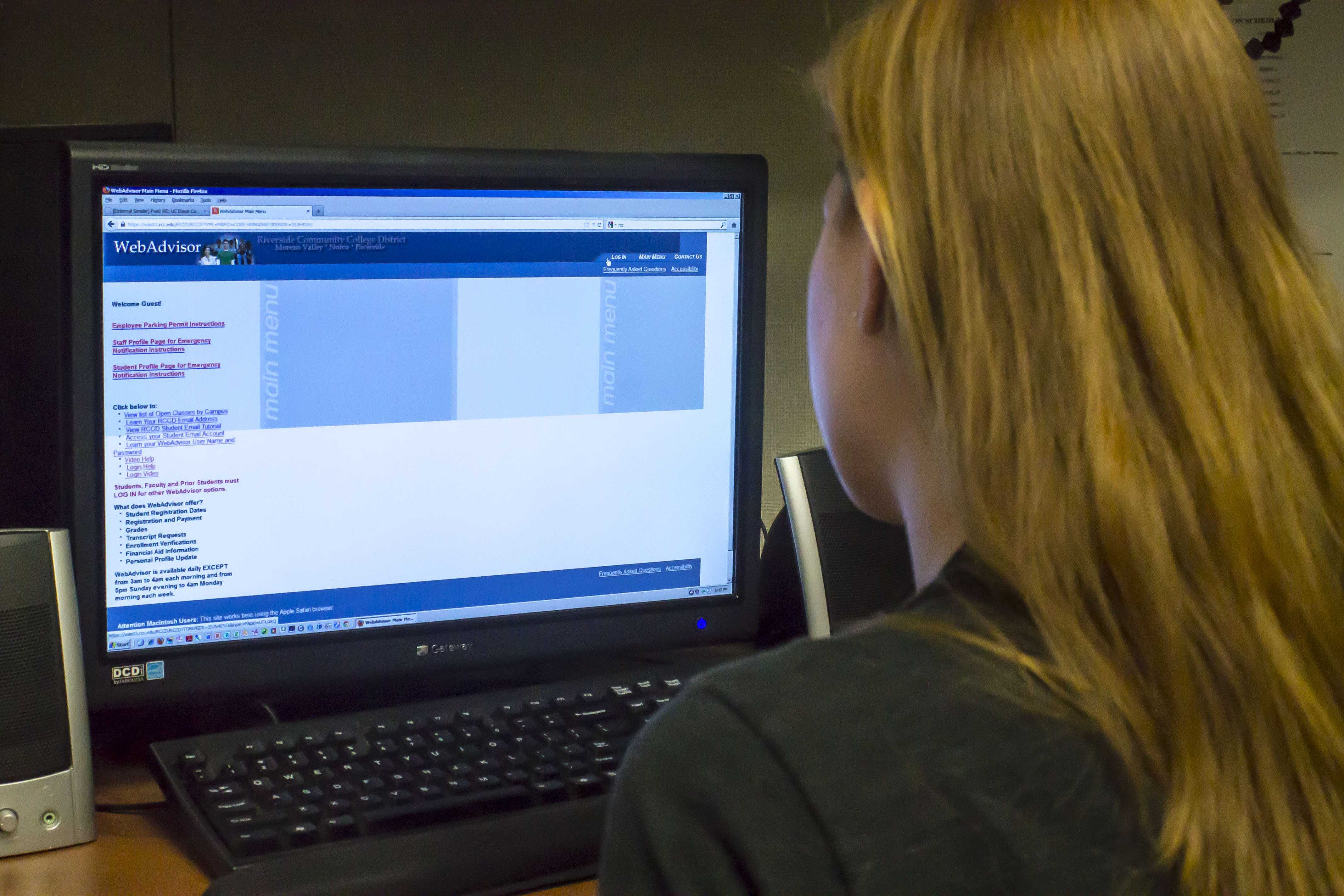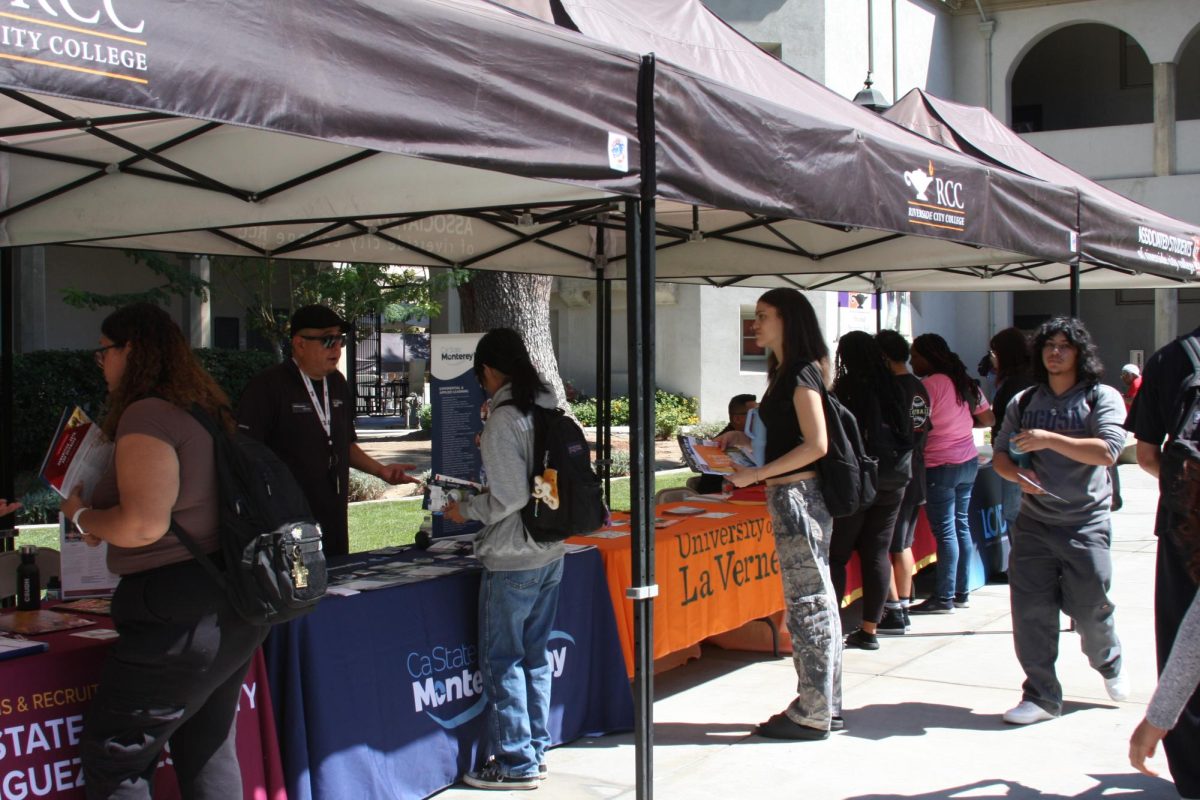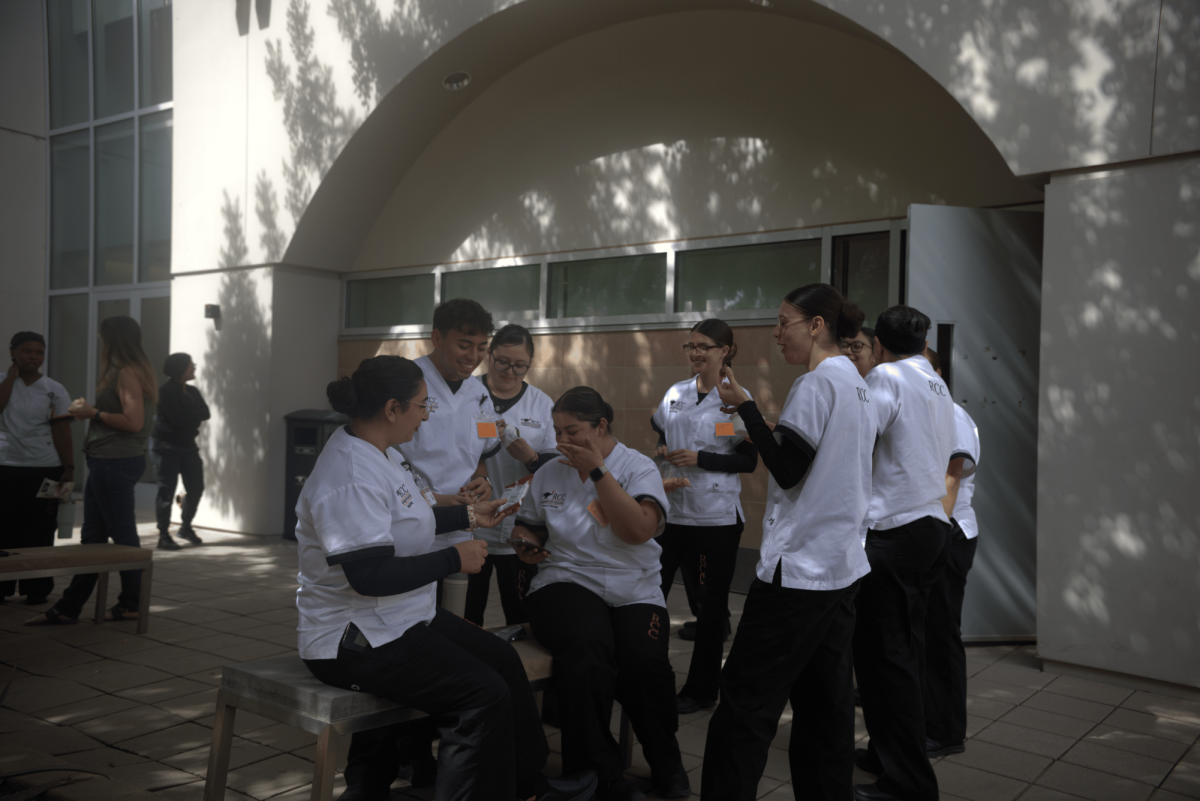
Andrea Stewart | Staff Writer
Oct. 16, 2014
It is estimated that students in the Riverside Community College District will no longer have difficulties registering for classes or be forever locked out of student email if they lost their password as soon as fall 2015.
Funded by a grant that must be used by 2016, RCCD will be getting a new portal to utilize and improve current online technologies.
The new homepage, commonly referred to as a portal, is being designed to replace WebAdvisor, Blackboard and student emails by combining their individual purposes into one accessible online location.
Many instructors and students have found different aspects of WebAdvisor, student email and Blackboard very confusing. Rick Herman, the associate vice chancellor of Information Technology and Learning Services, explained that it has been no secret that RCCD has been behind in online technologies.
“The Portal Project is being funded by a U.S. Department of Education Title 5 Developing Hispanic Institution Grant that was awarded to RCC in 2011,” Steve Gomez said. “We have been in action since 2012 and that’s when we first started putting together the ideas for this project.”
Herman and Gomez, of the Title 5 grant project, are both very excited about the project to improve RCCD’s online technology, which is being called “The Portal Project.”
RCC student Amanda Jordan revealed her opinion about WebAdvisor with no prior knowledge of a new program.
“I feel WebAdvisor can be inconvenient when registering for class because it is always crashing,” Jordan said.
Jordan also has concern for students when this program launches. She fears that students will log in unable to use the new site without any previous knowledge of it.
The purpose of the Portal Project will be implemented in four parts. The separate phases will essentially bring all student online sites onto one home page. Then create a single login access page and will provide student specific notifications and campus wide communications access.
The first phase is to relocate all the elements of WebAdvisor, Blackboard and student email onto one homepage, which will be designed for ease of use.
“The second phase, which we are sure students and staff will like, is single sign on,” Herman said. “Users can login and won’t have to log onto their email separately.”
“A one time login for multiple education applications will dramatically change the way students and staff access their email, WebAdvisor and the Digital Library. This will also increase ease of use in a classroom environment and off campus.”
“Thirdly, is to provide the content that you need within your environment,” Herman said. “So if there are announcements specific to one student at RCC, that is different than a Norco or Moreno Valley student, then specific announcements will be presented to you. It’s more content driven to the individual that is available readily to see.”
According to Herman, the fourth phase includes collaboration and communication that will help users be better students by easing the use of Blackboard and correspondence for in-person classes. It also allows for group announcements for clubs or group projects.
“So those are the four pieces. Pull it all together so we don’t have to go hunt down pages, single login, notifications and (you can) communicate with everyone you need to,” Herman said.
RCCD commissioned Illusions to write the program, which is the company that wrote WebAdvisor and will be integrating WebAdvisor into the new program. Using Illusions will help avoid user confusion when this new program rolls out.
The portal is expected to be in beta testing by a group of volunteer students and faculty in early 2015 so that any kinks can be worked out before the switch to the portal, which is expected to be ready by fall 2015.
For mobile users, the mobile application has been purchased along with this program. After all users are accustomed to the portal, they will have the opportunity to download and use the mobile application, which will allow users to check their student email and WebAdvisor on the go. Currently there isn’t an expected date for the application to launch.
Before the Portal Project can be fully launched, users need to understand how to use the portal. The plan is designed to deploy this program as opt-in so that users may learn how to use it and get used to it before portal completely takes over. Then, WebAdvisor, as it’s own application, will be shut down.
After the Portal Project rolls out, there will be updates and improvements needed over time. To handle updates a governance team has been created with faculty and students from all three campuses in RCCD. This team was created to ensure all contributions are from a wide array of people to ensure the program launches well and continues to run well from then on.
The goal is to help students succeed, according to Herman, which should be more evident when the program is available and eases the stress of class registrations and communication. There will be more updates and information to come.






